Did you know that earning an online degree can sometimes cost less than a single semester at a traditional college? This shocking truth is transforming education as we know it, offering unprecedented opportunities.
With the rise of digital learning platforms, understanding online degrees has never been more crucial. As this trend continues to gain traction, the future of education might just hang in the balance. But what does that mean for you?

The startling revelation is that some prestigious universities, revered for their centuries-old traditions, now offer fully-accredited online degrees. Harvard, Yale, and even Stanford have opened their digital gates, leveling the playing field like never before. Traditional classroom experiences are no longer the sole domain of esteemed academia. But that’s not even the wildest part…
When surveyed, 85% of employers claimed they find online degrees as reputable as those earned on campuses. However, students and parents alike remain skeptical. How can a degree earned through screen time stack up against one involving ivy-covered halls? The preference is shifting dramatically, and the underlying dynamics might surprise you. What happens next shocked even the experts…
Online degrees have emerged from the shadows of skepticism due to evolving tech platforms. Initially rudimentary, these platforms are now powered by AI and machine learning, delivering personalized experiences for students worldwide. This tech leap has positioned online learning as more effective and dynamic. However, challenges in access and affordability persist. But there's one more twist…
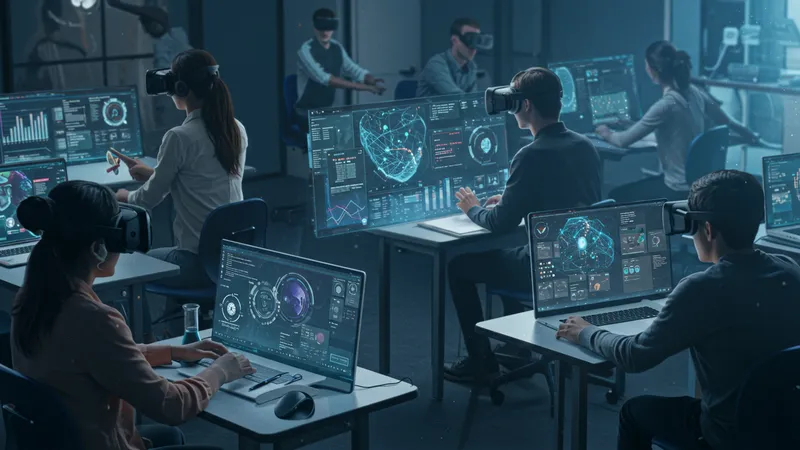
Today's digital learning models incorporate interactive elements far beyond traditional lecture slides, including VR simulations and virtual labs. This immersion transforms abstract concepts into tangible experiences, making distance learning incredibly engaging. Yet, despite the advancements, the gap between availability and outreach remains wide. Now, what you read next might change how you see this forever.
More intriguing is how learning platforms are now global communities, fostering collaboration that transcends borders. Students from different parts of the world can share insights and ideas, enriching the learning experience. Still, some potential pitfalls lurk in these digital corridors. But this is just scratching the surface of what's to come.
With accrediting bodies embracing flexible learning pathways, the biggest friction point lies in perception. Will degrees earned online hold the same gravitas? The answer is shifting towards 'yes,' as evidenced by the increasing integration of tech into education standards globally. The world of academia is evolving, and the next page will dive into how institutions are adapting.
Accreditation has long been the golden standard for degrees, providing validity and security to seekers of knowledge. As digital campuses bloom, ensuring that online degrees are properly certified is paramount. Institutions have taken bold steps to align with recognized accrediting agencies, closing the credibility gap previously associated with online education. Here's something few people know…
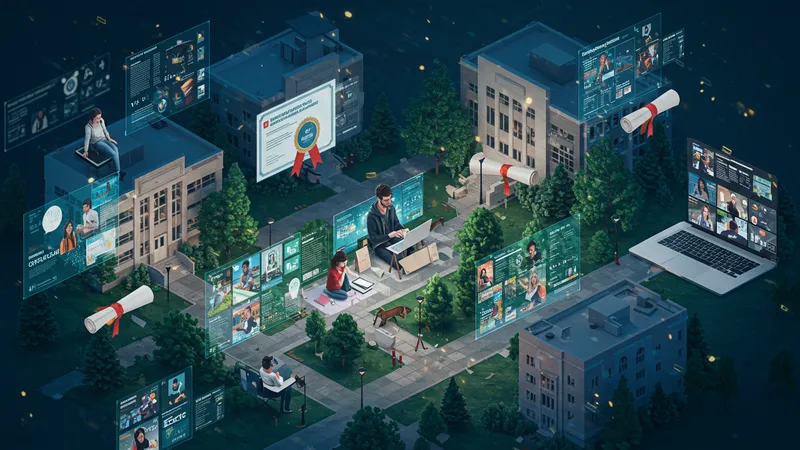
The process isn’t just about getting institutions accredited; it’s also about reshifting curricula to fit a diverse student population. This realignment means that online programs are often more current and adaptable than their offline counterparts. As a result, students encounter fresh, real-world problems, making their education relevant. Still more revelations await as we dig deeper.
What's astonishing is the collaboration among global education bodies to create unified standards. This unprecedented cooperation signifies a new era for academic parity, where students anywhere can trust in the quality and recognition of their online degree. What consequences does this have for the job market? It's more significant than we initially thought.
In this rapid transition, students hold a unique power to forge paths that older generations couldn't dream of, with pathways that transcend traditional educational boundaries. Yet, within this realm of potential, lies a web of complexities that could derail progression. What’s on the horizon offers a glimpse into a broader, interconnected academic world you might not expect.
One of the most compelling advantages of online degrees is their potential to lower financial barriers. The shift to digital has introduced models that trim tuition fees, accomodation costs, and even materials expenses. The affordability is a game-changer for many, yet certain hidden costs still surprise hopeful students.
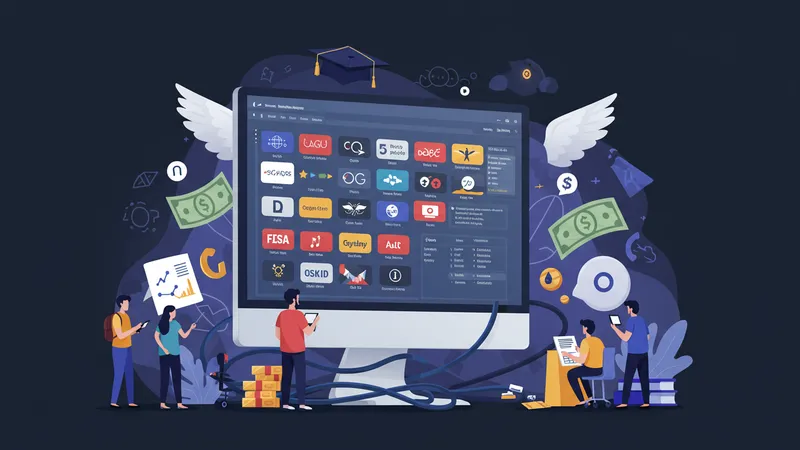
Understanding tuition isn’t the only financial consideration; transactional costs and tech access can create hurdles. In places with limited internet infrastructure, these 'invisible costs' disadvantage students, challenging the notion of equal access. Surprisingly, some institutions offer scholarship schemes, seeking to democratize education. But it gets more intricate...
The role of governments and philanthropic entities in funding digital education initiatives cannot be overstated. They have started considering huge investments in bandwidth expansion, aiming to extend digital education’s reach. Could this levelling of the playing field bring profound societal change? Experience suggests yes. Here’s why the next segment matters.
The democratization of education is underway, turning education from a lofty goal into an attainable right for many more people. As more players enter the digital education arena, competition has further driven tuition costs down. The tales you're about to read will delve into the real stories of those who've crossed these new academic frontiers.
The question of employability has haunted online degrees since their inception. Critics have doubted whether these degrees truly match up in the eyes of potential employers. Yet, data from a global survey paints a very different picture: an increasing percentage of employers are starting to prioritize skills over the source of the degree. But there's a twist...
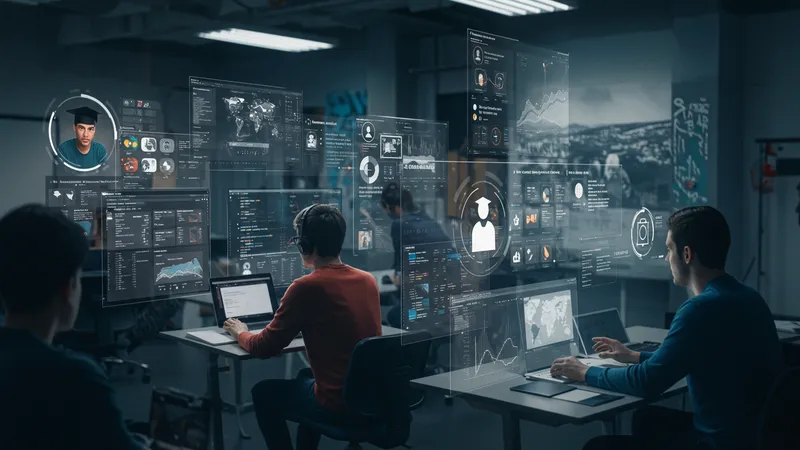
Skills-based hiring is gaining momentum, with companies shifting focus from traditional degrees to tangible skills, certifications, and proven experiences. Online degrees, often offering practical coursework and real-world applications, have aligned themselves perfectly with this trend. The result? Graduates prepared for a quickly evolving job market. There's a surprising aspect yet acknowledged.
Many online degree programs now directly collaborate with industry giants, tailoring their curriculum to the specific skills in demand. Amazon, Google, and IBM have partnered with educational platforms, generating a mutually beneficial ecosystem where education directly feeds industry needs. The fusion of academia with industry might just redefine professional landscapes.
Despite these advances, skepticism remains amongst certain sectors resistant to change, fearing that without traditional structures, educational quality might falter. Yet, as industries vouch for this new model, perspectives are shifting. The coming page challenges these doubts, presenting stories of success and ingenuity that may alter your view entirely.
One of the most innovative twists in online education is the emergence of micro-credentials. These certifications offer targeted learning, allowing individuals to upskill in specific niches without committing to lengthy degree programs. Surprisingly flexible and refreshingly specific, micro-credentials offer a new way to earn credibility.
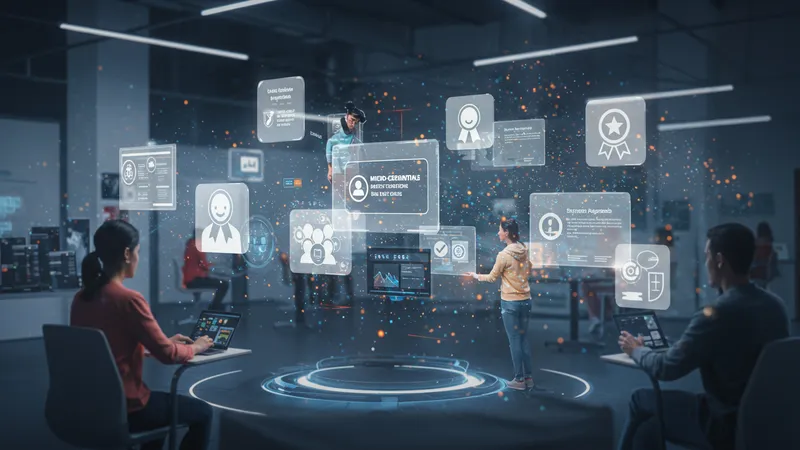
The versatility of micro-credentials allows students to interlock different specializations, creating unique skill sets tailored to niche markets. This flexibility responds to the fast-paced changes in today's job market, where adaptability has become a prized asset. Yet, there's more about these micro-credentials that few know...
While they provide a quick path to acquiring new skills, doubts about their endorsement remain. The shift in academia towards embracing these small yet powerful qualifications is ongoing, with experts reframing educational outcomes. As academic leaders start recognizing their potential, a new academic revolution seems imminent.
It’s fascinating how these micro-credentials also impact lifelong learning. They encourage ongoing education, appealing to an adult audience aiming to refresh their skill sets without sacrificing their careers. In the next section, we dive into stories of transformation led by these miniature certifications, opening a new chapter in personal development.
The debate over the value of online versus traditional degrees is long-standing, with each side presenting compelling arguments. At the crux of this discussion lies student experience: how does a screen-based education stack up against the classic campus life? The differences are both surprising and nuanced.

Online degrees offer flexibility—students balance learning with personal obligations, allowing for a custom-tailored educational journey. However, they lack the spontaneous interactions and networks that often form in university halls. This trade-off between convenience and communal experience shapes much of the current conversation.
Interestingly, online students have access to a broader network than one might think, leveraging forums and digital meet-ups to build connections. Virtual study groups and international collaborations add a layer of diversity traditional campuses might lack. Yet, skeptics often overlook one crucial benefit of online education.
Traditional degrees aren’t just about academics; they’re about the holistic development of an individual. Yet, online platforms now include mentorship, leadership programs, and life coaching, meaning the gap is narrowing. What lies ahead potentially changes the future landscape of education forever. Explore further as we unravel this evolving narrative.
Glorified for flexibility, online degrees aren’t without their stressors. The burden of self-regulation and motivation can be daunting for many, shifting responsibility from teachers to students rather dramatically. For some, this represents empowerment; for others, it introduces unexpected pressure. Here’s where it gets even more interesting...

The anonymity of online education can lead to isolation, with students missing the camaraderie and social facets of traditional learning environments. Institutions try to counter this through virtual events and community discussions, but the challenge persists. However, younger students seem to thrive more in this setup. There’s more to unpack here.
Another dimension to consider is the cognitive load of digital saturation. Spending endless hours on a screen can result in fatigue and burnout—a real concern that online programs are barely addressing. The introduction of 'screen breaks' and mental health session integrations aim to ameliorate these effects, though the outcomes remain an ongoing study.
As awareness and technology evolve, the potential for truly individualized, balanced learning experiences increases. What might surprise stakeholders is how students are adapting on their own, creating peer-led initiatives and support systems. The adaptability of modern students is astounding and suggests new models of student life online.
Technology doesn't just facilitate online learning; it actively enhances it. Virtual reality allows students to step into scenarios once impossible in traditional settings. Imagine 'being' at an ancient archaeological site without leaving your room. These immersive experiences bring education alive in novel ways. But what surprises most is yet to come...
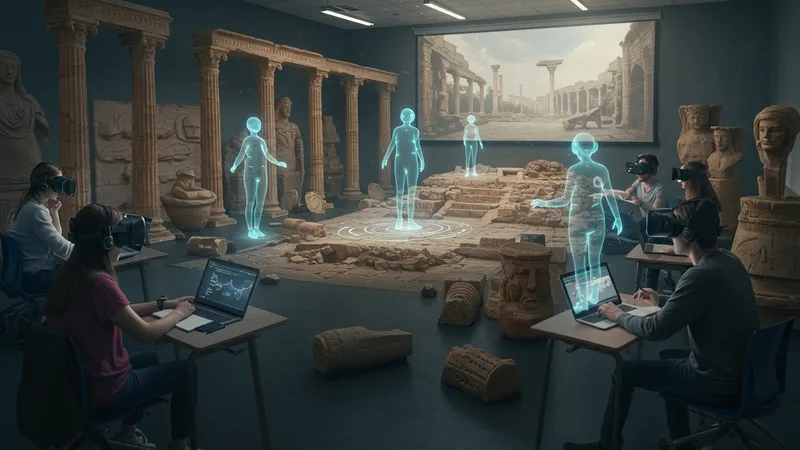
AI-driven personal tutors have become a staple in digital learning environments, offering laser-focused help that reaches beyond standard teaching frameworks. These intelligent agents can adapt to a learner's pace, drive engagement, and ensure comprehension—a game-changer in educational accessibility.
The inclusion of gamification in curricula turns learning into an interactive, rewarding experience, fueling intrinsic motivation. This shift signifies a significant departure from traditional rote memorization and lecture-based methods that dominated the classroom for decades. Gamified learning, while new, shows promising results.
Keeping up with rapidly evolving tech is crucial; soon, today's innovative tools could become the norm. The challenge will be adapting to these changes while maintaining educational quality. What you discover in the next segment may offer glimpses of future possibilities that redefine academic rigor entirely.
Forecasting the future of online degrees reveals a dynamic and continually evolving landscape. One of the most eye-catching projections is the anticipated dissolution of geographical barriers, potentially equalizing global educational access. But the journey towards this reality reveals numerous surprises.

The rise of hybrid models, blending online and face-to-face elements, caters to diverse learning styles and needs. This adaptability may become the standard in higher education as institutions aim to combine the best of both worlds. The unexpected challenges of implementing these models remain, but the possibilities are endless.
Growing partnerships between educational bodies and tech industries promise a progressive approach to education. The integration of cutting-edge technologies has the potential to shape curricula that prepare students for evolving job markets. Predicting this integration roadmap is complex but fascinating.
While the future seems bright, it comes with complexities that need addressing: policy changes, infrastructural adaptations, and overcoming systemic biases. The path forward holds thrilling opportunities and intricate barriers that require creative solutions. Catching a glimpse of tomorrow starts here.
The bold transition from traditional to digital education marks a seismic shift that reshapes how we gain knowledge. While online degrees challenge convention, they herald exciting possibilities for lifelong learning, accessibility, and innovation. As this paradigm evolves, examining its impact and trajectory becomes vital.
Your learning journey starts now. For those who dare to explore the uncharted realms of online education, the future looks brighter than ever. Join the conversation—share these insights, spark debates, and inspire others as a new era of learning unfolds. The next big leap in education is already underway. Embrace it!